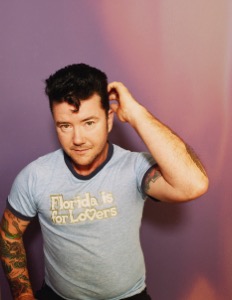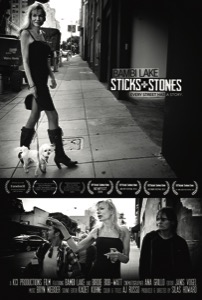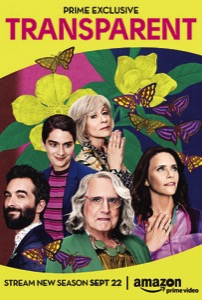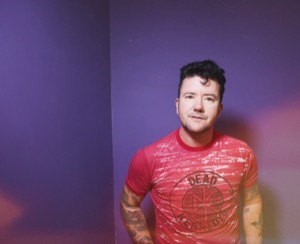
Friday, Sept. 22, the critically-acclaimed HBO drama, Transparent, began its fourth season. To date, 16 episodes have been directed by showrunner Jill Soloway. Some, three so far, have been directed by Silas Howard, a man whose ability to synthesize the messy intersection between life and art seem apparent yet remarkable. I’d say ‘authentic’ if that word hadn’t become the ‘organic’ of the creative class. But Howard, whose many previous videos speak volumes about his talent behind a camera, creates authentic and organic visions that rely on the inherent tension between the ideal and the real. His short film about Bambi Lake, Sticks and Stones – a staple of ’70s San Francisco, captures the mood of a glorious party era and the stinging hangover that inevitably falls with a brush that paints both her imagined life and her life as it was with intoxicating results.
Transparent is another in a long line of successful efforts that mine those tensions – the ideal versus the real – in a show in which a parent realizes she’s a trans woman late in life and the way this coming out effects her family.
Whether it helps that Howard himself is transgender will fall upon historians to judge. But now, in the here and the present, Howard struggles with the quotidian tasks of a director, a manager of others and a symbol, welcomed or otherwise, of transgender pride and the enormous creative efforts that have made Transparent a hit both critically and commercially.

San Diego LGBT Weekly: There’s a sadness that pervades your visual storytelling. And I picked up on that when Bambi Lake in Sticks and Stones went so far as to celebrate it. Am I off the mark? I feel like there’s a theme of misunderstood people trying, not always with success, to be understood.
Silas Howard: The thing is, Bambi hardly ever shows that side. She is using humor in her art (and her quick brain.) I’m always on the search for the transformative power of grief. Grief is something we all have to go through; some of the most inspiring people around me transform grief and put it into art or it’s what fuels their humor or fuels their connection to people outside of their own world. I think that it’s funny that as a person I avoid ‘sad.’ It can be very uncomfortable but it’s something I really seek and in the work that I do. People like Bambi. Most of my work revolves around loss, grief and death. All those upbeat topics.
Is that something you’ve always been interested in, even as a child? What drew you to these themes?
I think, you know, probably it just was. I’ve got it in my family, too. My dad raised me for the most part but both he and my mom were teenagers when they had me. They were young kids, they were outsiders even though they were living in small towns, they didn’t necessarily look visually like outsiders but I think they both were outsiders. And my father used humor as a tool to deal with a lot of difficulty. You know, he didn’t finish high school but he was wildly ambitious. He was always starting various businesses and various ventures and that, I guess in a way, you know, I got from him in terms of my approach. And I just watched him. And there’s many of us in this country, where there’s this mainstream idea of everyone has a shot in America and this great narrative this country tells. And then there’s the reality of class and race and gender and equality that are actually systems and laws. They’re not conspiracies on people not getting what they want. There are actual facts about our society and why some people thrive in this society at a cost to others. But I do feel like what I saw was my immediate family using humor as a way to prevail … as a way of having dignity … having the ability to see outside of whatever was in front of them that maybe they felt was unfair. I do think that using humor or grief, you know, the old classic tragic comedy is very much my upbringing and I think is a part of a lot of people’s upbringing especially if you’ve been denied access to a lot things.
Do you feel a special onus, a special responsibility being trans directing a show about a transgender person? Did you feel that other people felt you could bring a sensibility to Transparent that, say, a straight male or female couldn’t?
I would say ‘yes’ to both. I felt that there was. I have my own, what I call my own wrestling with the burden of representation: How I’m representing the trans working class, those things that are sort of geared to my personal experience. And for me the burden of representation is, like, I’m aware of what’s out there and I am aware of what I’m comfortable filming. I think when you’re not aware, when there’s not a scarcity of representation, you can just go wholeheartedly into messy storylines. And when there is a scarcity, it’s hard to do that because images mean so much. And everybody has these different messages they want to say so I do think it’s really difficult.

What’s amazing about Transparent is that it’s about Maura’s family so I think she has permission to go into family dynamics that are inherently human and flawed. We do the wrong things all the time to people that we love who we have no choice but to be stuck with our family. So it’s a great setup for just really looking at, you know, the messiness of being human and all of that. But, yeah, Transparent already had incredible trans consultants – Zackary Drucker and Rhys Ernst – queer writers and Our Lady J, a trans woman, in the writers room. I was one of the many trans voices on the show. But the power of directing is a big deal. It’s a privilege. It’s one that should be shared.
And that’s the beautiful thing about telling a story as profound as Transparent. You seem to have a lot more creative control. I mean, all I read about in Variety and The Hollywood Reporter and the trade papers is how rigid the system is and it doesn’t help that the system is still controlled by mostly white, male cisgenders. It doesn’t speak to a lot of us who have ‘alternative’ histories.

No, I think that’s so true. It’s really about building it from the ground up. I’ve talked a number of times about cis actors playing trans roles but I’m much more interested in opening up stories that are told from authentic experiences, whatever that expression is. I’d rather go in the direction of building up equity for those that have been denied than being dogmatic about who can do what.
And with Transparent, what I learned from watching (showrunner) Jill Soloway, the kind of badass feminist powerhouse move that she does is that she listens to everyone in the room. She actually is interested. It’s not like, oh, everyone gets to say but I’m only going to listen to my ideas. She’s actively listening to everyone in the room who has an opinion, who has an experience. That was so cool to see. But I think it comes from confidence versus the typical stereotype of the auteur that just does their own thing and they don’t let anybody else say anything. She’s still making decisions about the show but she’s really fearless and smart to hear; each person she’s brought into that room has something really important and unique to fill out that story.
Of course, the more specific and anecdotal a story is, the more universal, the more it’s going to feel real to somebody because, like, we all have our different ways of growing up but everyone’s been through a humiliating experience.
For more on Silas Howard visit silashoward.com











